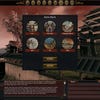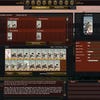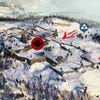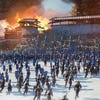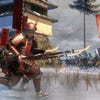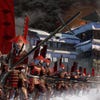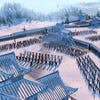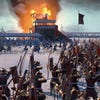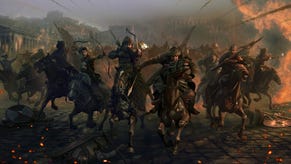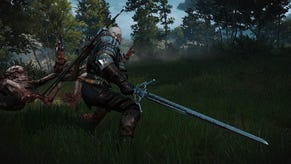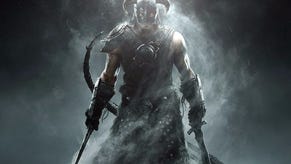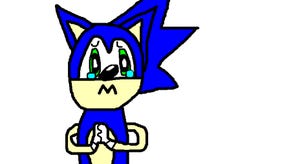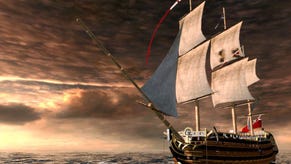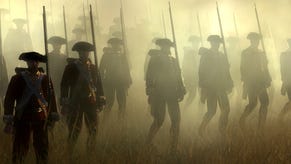Game of the Week: Shogun 2
Totally.
There were a few surprises at this week's BAFTA ceremony – such as Civilization V outgunning StarCraft II in the strategy category, and the realisation that Gemma Atkinson still has a career of some description – but whether or not you agree Mass Effect 2 is a better game than Heavy Rain or Assassin's Creed: Brotherhood, there was a lot of quality and variety to salute among the many worthy candidates.
You know, I've lost my appetite for schadenfreude lately. Bad games still make me angry, but only in the moment and the abstract. I've watched too many overworked producers clicking hopefully on Metacritic bookmarks, and I've met too many marketing guys who work 15-hour days to get people to notice an 8/10 video game, even though it seems like everyone – developers, journalists and gamers – automatically distrusts and maligns them.
The belief that bad reviews are more fun to write than good ones is no longer a truism in my world, and I want good games to sell. In fact, I want people who spend their lives toiling on bad games to get paid anyway. I kinda hated Fracture, for example, and I wouldn't recommend anyone bought it – but I hope the people who made sure the vortex grenade put a smile on my face once or twice weren't turned out on their ear when the NPDs rolled in.
It's not just the human side of it that gets me, though – it's the fact that, as Christian Donlan argues persuasively in his recent retrospective take on Stranglehold, some of this industry's best and most lovable output lurks somewhere between mediocrity and greatness. One of my favourite games ever is Viva Pinata by Rare. According to Cliff Bleszinski and to some extent Satoru Iwata, the future is not bright for such things. And the more games that fail, the more risk-averse people will more quickly become.
So I don't really find it funny when THQ's stock nose-dives on Homefront reviews, and I don't enjoy the seemingly oblivious stream of propaganda from Danny Bilson, whose credibility will probably now be called into question by investors who bet on his passion for Homefront. What now for Red Faction Armageddon or Saints Row The Third? I want both to be ace, and they very well could be, but after all the 6s and 7s for Homefront they will be given less of the benefit of the doubt.
One critic said to me this week that THQ is the archetypal "double-A publisher", releasing lovable fluff like de Blob 2 and fluffing a wannabe Call of Duty amid ideas above its station. Well, Homefront may be a poor game – we certainly thought so, all things considered – but I hope it doesn't deter Bilson and company from investing in and believing in creativity. And I hope they know we only give stuff 6/10 with a heavy heart.
Onto brighter things. Leaving Homefront aside, this week we're relatively spoiled for choice at the tills. Yakuza 4's Kamurocho is an exceptional and vividly realised place in which it was always going to be a delight to send the exceptional and vividly realised Simon Parkin, for example.
Top Spin 4, meanwhile, is a "smash hit", according to Kristan Reed (trivia: Virtua Tennis is the only game he's ever beaten me at, by a mile). MotoGP 10/11 rescues a wonderful simulation from the jaws of last year's arcade obsolescence, says Matt Edwards, and Okamiden on DS is simply the sort of game we set up Eurogamer to write about.
But none of them is our game of the week, because that accolade lands closer to home. Just up the road in Horsham, in fact.
Total War: Shogun 2
The vast scale of the Total War series has always been slightly terrifying – especially for reviewers, who could play one of the games for dozens of hours and still risk becoming, as Tim Stone jokes in our 9/10 Shogun 2 review, "the critic that failed to notice that all the horses only have three legs".
Shogun 2 is huge as well, of course. It has a 60-province theatre map and an Avatar Conquest multiplayer mode "so substantial it's almost a game in itself". If you like Total War so much, you could go live there.
But it's the micro-scale stuff that lives on in the memory. For Tim, it was characters like Yoshitaka, his senior ninja, with tiger claws for climbing and a personal history so pregnant with meaning that they held their breath together for every engagement.
Total War has been a constant throughout Eurogamer's 11 years tapping keys about computer and video games, and that in itself is not too remarkable, as there are plenty of series that have run longer and further. The difference is that while most of them have fallen apart at the seams at some point and required dramatic, life-changing surgery (FIFA) or a succession of total reboots (Tomb Raider), Total War has grown and prospered without the need for wholesale reinvention.
Since 2009's Empire: Total War, its metronomic success in the early months of every year may be tiring for the untrained observer, but certainly to those in thrall, its reliability is as great a virtue as its fascination with and passion for period detail and the mechanisms of ancient warfare. And in a week where we've enjoyed the incredible highs of the BAFTAs – most especially Peter Molyneux's wonderful and emotional Fellowship acceptance speech – and the lows of months of hype crashing against the rocks of critical indifference, that reliability is a quantum of solace, if nothing else.


